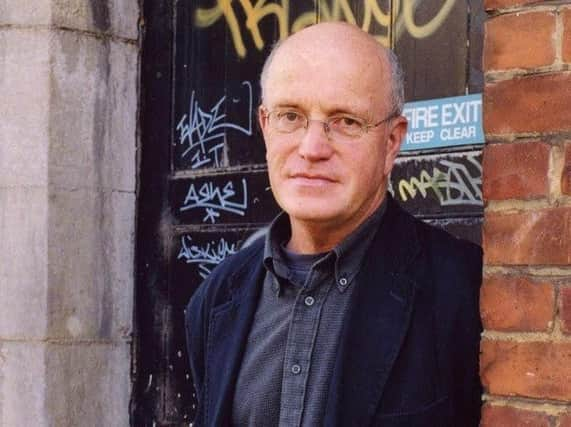Edinburgh Book Festival: Iain Sinclair, Sir James MacMillan & Alan Johnson


At least, not until Wednesday, when he made his first visit to Charlotte Square to the delight of fans of his brand of psychogeographical writing.
Although his grandfather is from Aberdeen, Sinclair is best known for writing about London, for walking and wandering, musing on people and places past and present. Having lived in Hackney for 40 years, he has become the chronicler of a city as it morphed from a place where ordinary people could afford to live into a playground of property developers and the super-rich.
He is coming to the end of his time writing about London, he said. He has done what he could. Now the gap between rich and poor is “more extreme than ever, and the pavements are filling up with the casualties”. Tower blocks are being turned into penthouses which are sold as investments and left to sit empty. A “new philosophy” is needed, one which does not extol property ownership as the be-all and end-all of life.
Sinclair’s latest book is Living With Buildings and Walking With Ghosts: On Health and Architecture, commissioned to accompany an exhibition at the Wellcome Collection. Never one to toe a line, he quickly found himself questioning the exhibition’s arguments. His investigations took him from London housing estates to Le Corbusier’s ‘Radiant City’ in Marseilles, to the Isle of Harris for a remarkable encounter with the sculptor Steve Dilworth and his wife, shortly before her death.
Sinclair’s writing forever reaches towards that which lies just beyond the physical world. In this, he shares common ground with composer Sir James MacMillan, who spoke of how often music forges a connection with the spiritual, both for those of faith and avowed agnostics. Who knew, for example, that John Cage’s famous 4’3”, was originally titled Silent Prayer?
He spent an engaging hour in conversation with Ian Paton, Scottish Episcopal Bishop of St Andrews, Dunkeld and Dunblane, talking about his life and his memoir, A Scot’s Song, published to mark his 60th birthday. That event is currently being celebrated in a series of concerts at Edinburgh International Festival, which last Saturday staged the world premiere of his Fifth Symphony.
MacMillan described the moment he was first handed a recorder at school at the age of nine, knowing at once that he not only wanted to play but to compose his own tunes. When he is composing, he said, “every waking and sleeping moment” is dominated by the work at hand. Then, when the final bar is written, the thoughts and ideas evaporate almost immediately. If he is asked to conduct the same piece years on, he must learn it again from scratch.
The next guest in the main theatre was also discussing a life with music: former MP Alan Johnson, who has followed three highly acclaimed volumes of autobiography with In My Life: A Music Memoir.
Johnson is a charming – and, on this occasion, determinedly unpolitical –raconteur. Judging by the response from the audience, he was speaking for many in the baby boomer generation when he described the arrival of rock’n’roll, the difficulty of finding Radio Luxembourg on a crystal set, and the moment the Beatles topped the US charts.
The anecdotes came thick and fast, from the poignant story of watching his mother transported by the sound of Bing Crosby and Grace Kelly singing True Love, to the day when, as a postman in Slough, he was tasked with emptying a pillar box in an area mobbed by Bay City Rollers fans, to a stolen Hofner Verythin guitar, which resurfaced in Edinburgh 40 years later.
Johnson played in a few bands before swapping them for trade unionism and eventually politics. Now his business is storytelling – his first novel is due out next year – and we would have happily listened to him all day.